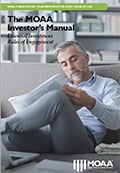You may have made some good-intentioned financial resolutions back in January, but now that we’re a little more than halfway through the year, it’s time to check up on your financial goals and, if necessary, correct your course.
Here are five money moves to make this summer that will keep you on track.
1. Audit Your Tax Situation
The IRS says a mid-summer tax checkup can prevent surprise tax bills down the road. The agency suggests checking your pay stub now to make sure the correct amount is being withheld. You can use the IRS’s Tax Withholding Estimator to help you assess whether you need to make any changes.
Remember, most income is taxable – that includes unemployment income, income from the gig economy, and virtual currencies. Consider whether you may need to make estimated tax payments. If you don’t withhold enough tax throughout the year, you may be charged a penalty by the IRS even if you are due a refund when you file your return.
If you have a flexible spending arrangement (FSA), which allows you to set aside pre-tax income on qualifying medical, dental, and vision expenses, you’ll want to start tapping into that soon, since most FSA’s are “use or lose.”
[RELATED: Prevent a Future Financial Headache With These 6 Checkups]
2. Plan for Gifts and Charitable Giving
Whether you are giving tangible items or assets to loved ones, it’s never too early to plan for them. The annual gift tax exclusion, which is $17,000 this year, can be a powerful estate planning tool.
Charitable gifts can potentially give you tax savings while allowing you to donate to your favorite cause. MOAA has multiple resources to consult on this topic, including articles to review, an upcoming webinar, and more.
[RELATED: Donate to MOAA Charities | More Donation Options (Including Estate Gifts)]
3. Make the Most of Your Cash
If you have money sitting around in a traditional savings account at a large, brick-and-mortar bank, you might be losing out on hundreds of dollars of interest. The national average savings account has a 0.53% annual percentage yield (APY), but most online banks have much higher rates, some approaching 5%. A quick internet search can bring up a comparison of rates.
Make sure you choose a bank that is a member of the Federal Deposit Insurance Corporation (FDIC), which will protect accounts up to $250,000 (Split larger amounts between FDIC-backed banks to keep your funds protected). Many online banks have lower minimum balances and no monthly fees for their accounts.
If you don’t need the money for a few months, consider a certificate of deposit (CD). Many online banks are currently offering CDs with an APY over 5%. You’ll want to comparison shop – again, make sure you choose an FDIC-insured institution. Considering a CD through a credit union? Visit the National Credit Union Administration’s website (NCUA.gov) to begin your research.
4. Pay Off High-Interest Debt
It does you no good to search out high interest rates for your savings accounts if you are also carrying consumer debt. The average credit card interest rate is at 22.45% for new accounts and 20.68% for existing accounts; neither the best online savings APY nor the highest-performing investments are going to come anywhere close to this.
Once you have made sure that you have enough set aside in emergency savings, consider paying off debt, starting with the highest interest rate first.
[RELATED: MOAA’s Financial Calculators]
5. Evaluate and Rebalance Your Portfolio
The financial markets in the first half of 2023 have been called “strange and volatile.” Even in calmer times, market behavior can cause your investment portfolio to drift, changing your allocation. Make sure you keep your desired mix of stocks, bonds, and other assets by periodically checking on your investments and making the necessary changes.
Seeking additional financial resources as you plan your summer money makeover? Visit MOAA.org/finance for the latest news, details on upcoming events, tax updates, and much more.
 Download The MOAA Investor’s Manual
Download The MOAA Investor’s Manual
This guide will help you better understand and manage your investments. It's available exclusively to PREMIUM and LIFE Members, who also may speak with MOAA benefits and financial counselors for further assistance.
Not a member? See below to learn more about joining MOAA or upgrading your membership.



